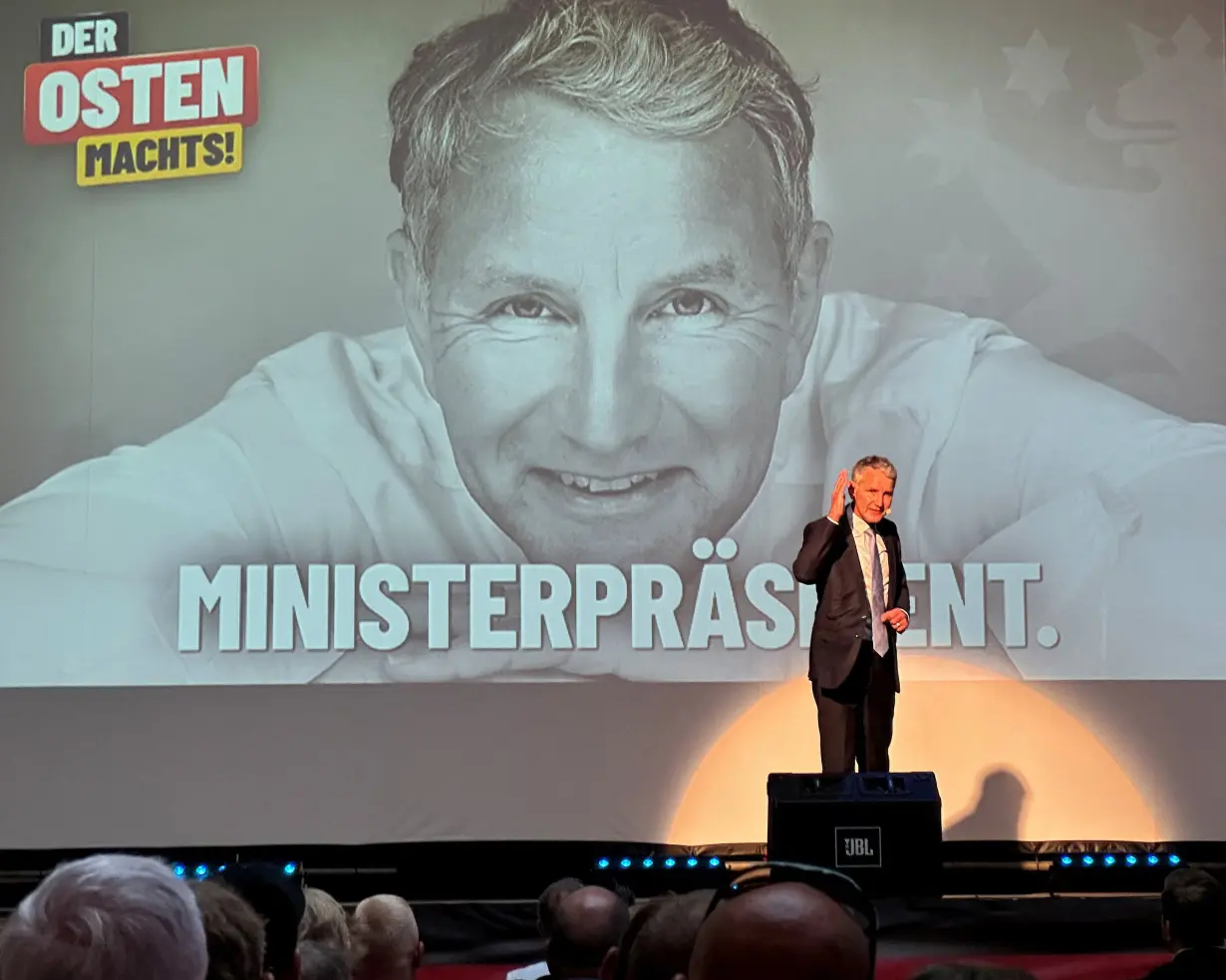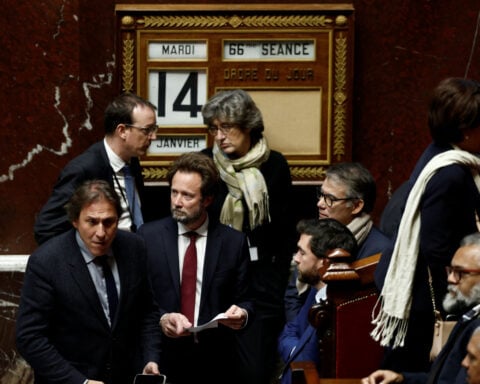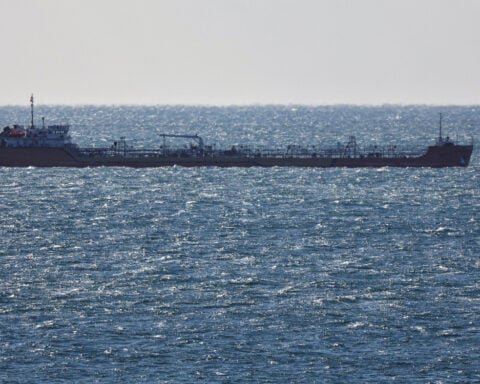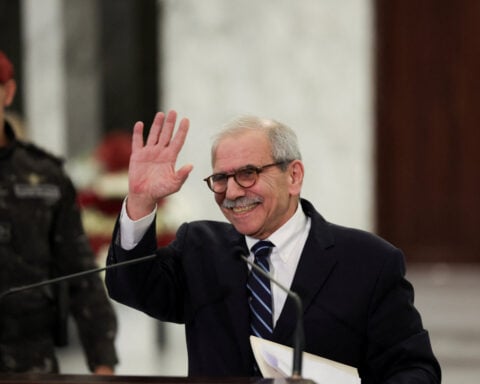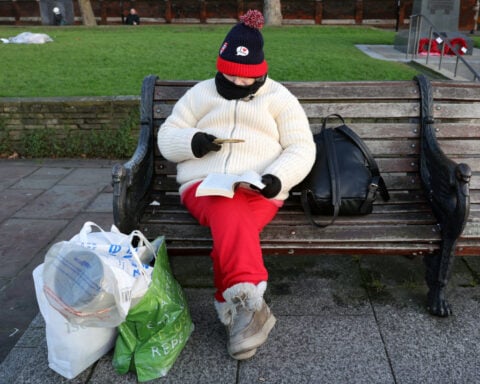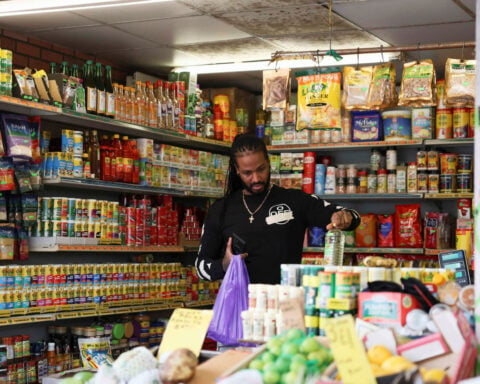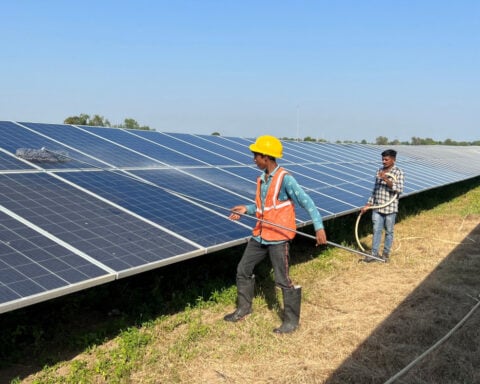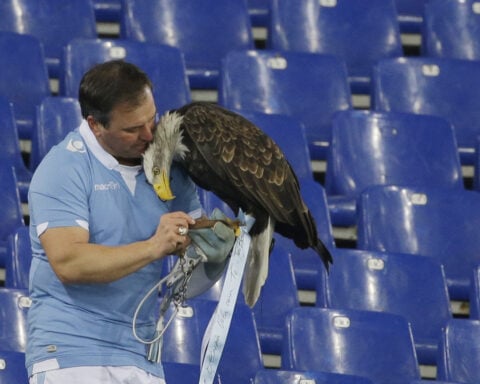By Thomas Escritt
ARNSTADT, Germany (Reuters) - In this small town in eastern Germany, far-right politician Bjoern Hoecke promises a rapt audience he will stop immigration and housing shortages, gender-aware language and weapons deliveries to Ukraine.
"Here, in the east, the sun is rising," said the 52-year-old leader of the Alternative for Germany (AfD) in the state of Thuringia at the July launch of the party's campaign for a state election in September which polls suggest it could win.
Hoecke's admirers see the man with a boyish quiff and piercing blue eyes as a protector who shares their desire to challenge Germany's political mainstream.
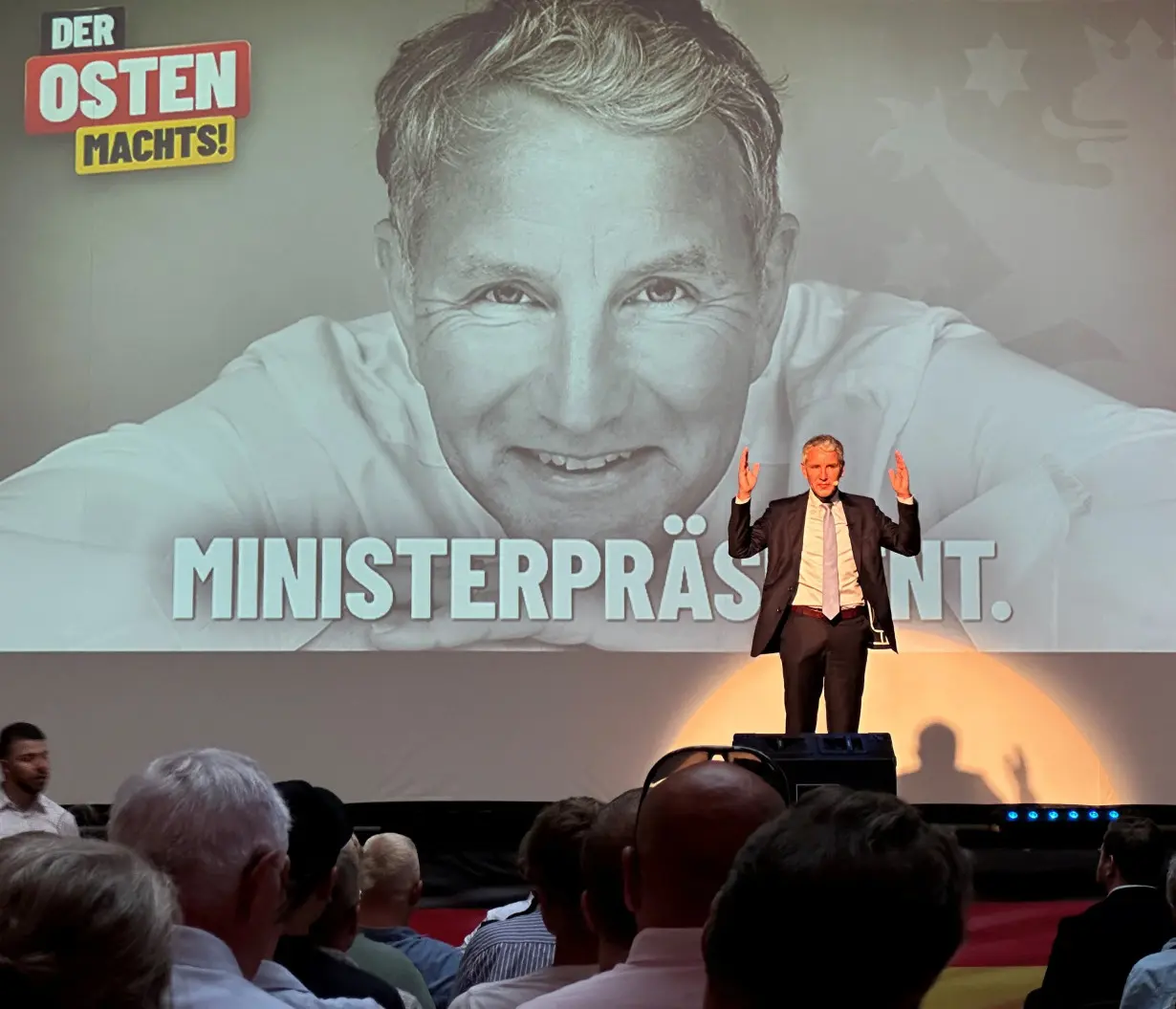
Detractors say he is a threat to democracy, pointing to his conviction for using a Nazi slogan at a party rally.
"He claims to be fighting to re-establish justice and freedom in Germany against what he says is a coalition dictatorship," historian Jens-Christian Wagner, head of the Buchenwald concentration camp memorial, told public radio.
"What he's really doing is attempting to establish authoritarian populist rule in Germany," he said.
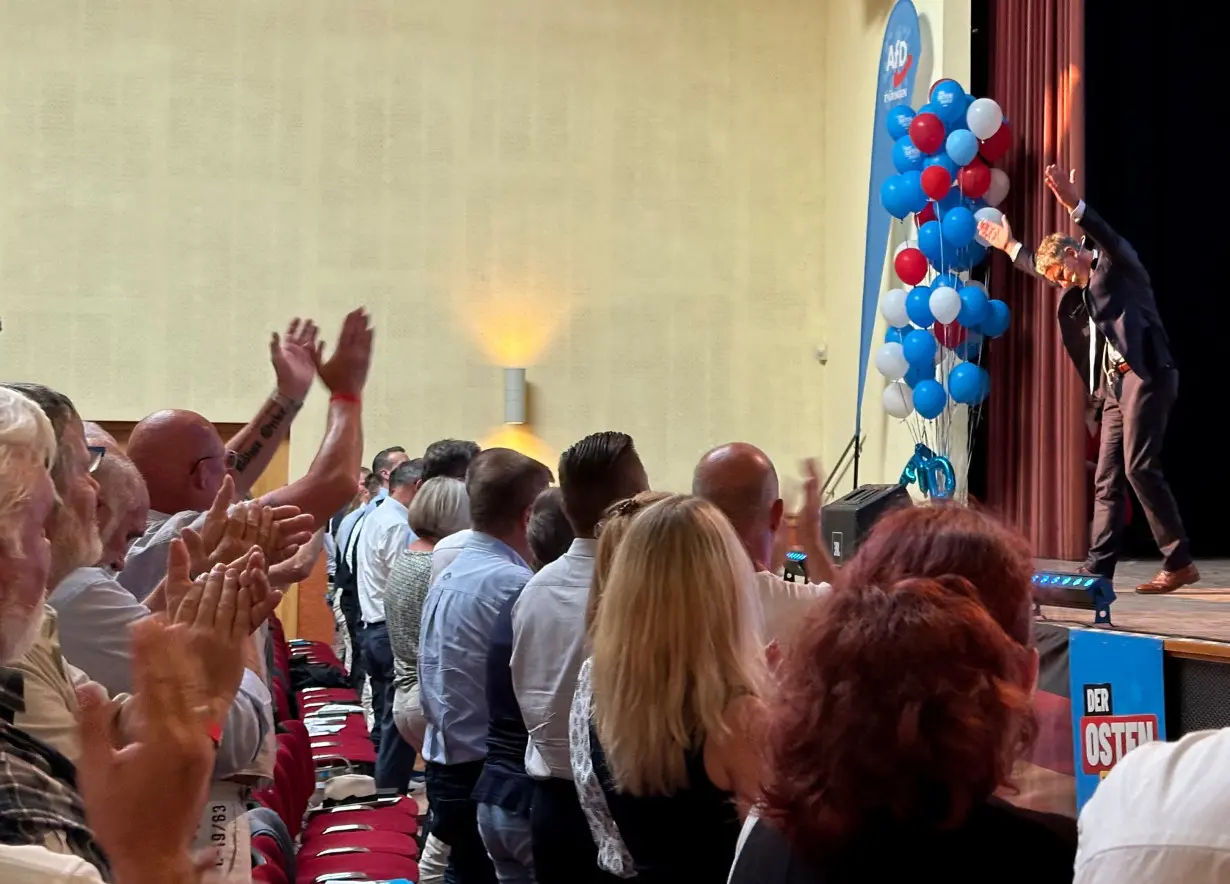
Opinion polls show the AfD could win 29% of votes in Thuringia on Sept. 1. Although unlikely to gain power - all other parties rule out a coalition with it - the nationalist, eurosceptic AfD could win more votes than any other party.
If it does, it will be the first time a far-right party has the most seats in a German state parliament since World War Two.
Despite several scandals and anti-extremism protests, the AfD came second with 15.9% of votes cast in Germany in June's European Parliament election. Polls suggest it could also win elections in September in the states of Saxony and Brandenburg.
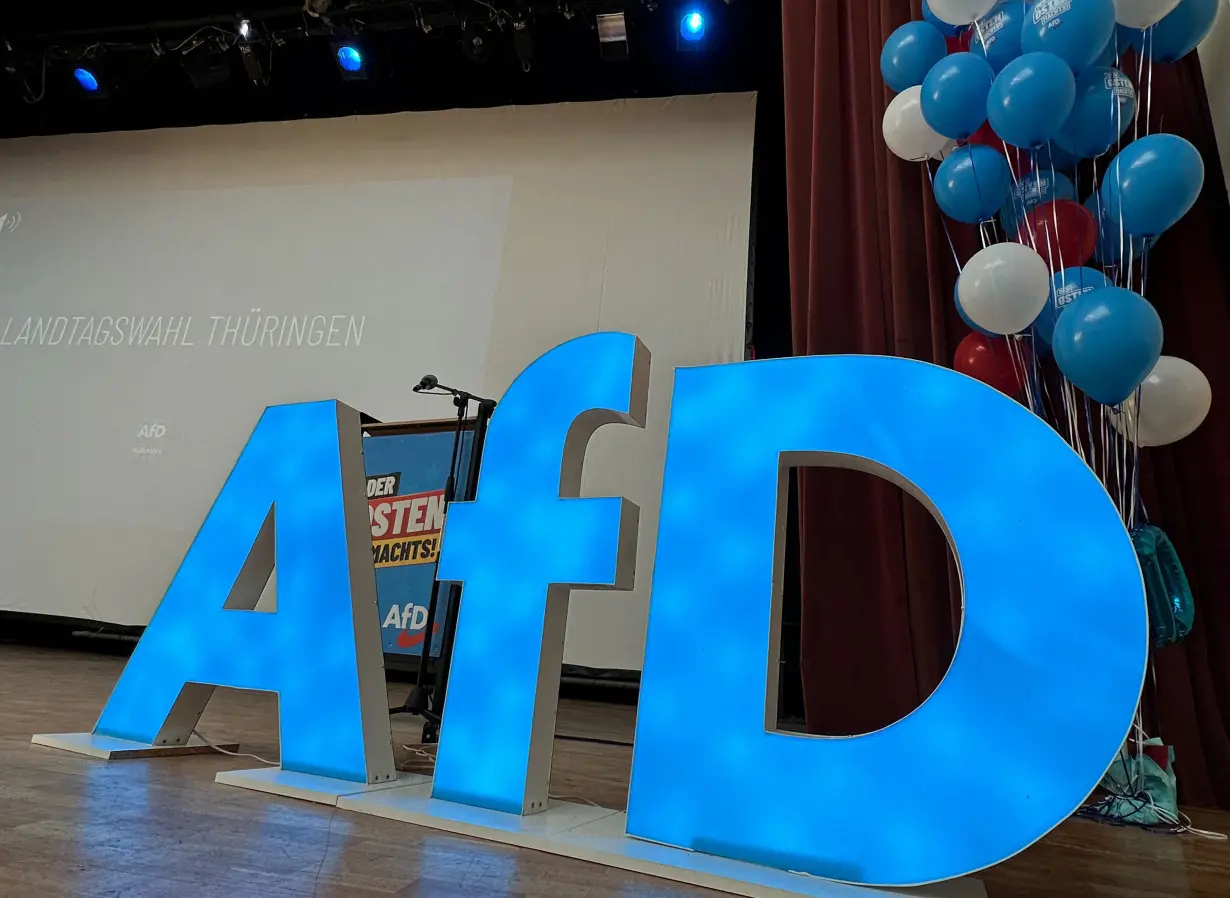
RESHAPING AFD
When Hoecke joined 11 years ago, the AfD was a party of hard-right economists who wanted to scrap the euro and resurrect the Deutsche Mark.
Now it is widely seen as a culture war party that banks on Republican Donald Trump winning the U.S. presidential election in November, reflecting how Hoecke's far-right wing has managed to see off successive leaderships to reshape the party.
Past leaders attempted to sideline or expel Hoecke after he called Berlin's memorial to Nazi Germany's Holocaust of Europe's Jews a "monument of shame".
This year their successors defended him when he was convicted of hate speech and fined for shouting the slogan of the Nazis' paramilitary wing at a party rally.
"Everything for Germany," Hoecke, a former history schoolteacher shouted, later telling authorities he had not known it was the slogan of the SS.
"He seeks to shift discourses, make sayable things that were previously unsayable," Stephan Kramer, head of Thuringia's domestic intelligence agency, said before the start of campaigning in the state.
Born in Germany's far west, Hoecke taught history and sport before starting his political career in Thuringia, the second poorest of Germany's 16 states.
The father of four appeals to young people who feel adrift in an uncertain world, often recalling a childhood spent on solitary long-distance runs through forests and across hills.
Some young men regard him as a model of masculinity, and some traditionally minded young women see him as offering a patriarch's protection, said sociologist Klaus Hurrelmann.
Some set his speeches to urgent, martial music on TikTok.
"He speaks to you like a friend but he also has authority," Leona Fries, 17, said after the rally. "Like a teacher."
Leo, a man in his early 20s distributing party flyers, said seeing his friend "beaten up by her African boyfriend" prompted him to join the party.
Like Leona, he belongs to the party's Thuringia youth wing, which security services have classified as an "aggressively militant" extremist group - a first step towards a ban.
Some AfD members quit the party as it drifted rightwards. Sylvia Lemmer, a former European Parliamentarian, quit the AfD over the dominance of Hoecke's faction.
"He laid his eggs everywhere," she said.
The party also lost some support after a member of staff for Maximilian Krah, a Hoecke protege who its lead candidate in the European Parliament election, was charged spying for China.
Krah's failure to repudiate the SS in an interview also cost the AfD its alliance with Marine Le Pen's right-wing National Rally in France.
Hoecke's young fans seem unconcerned.
"He inspires everyone," says Anna Leisten, head of the party's youth wing in Brandenburg, after hugging Hoecke on stage.
(Reporting by Thomas Escritt; Additional Reporting by Sarah Marsh, Editing by Timothy Heritage)

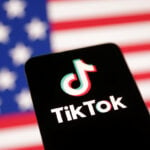 TikTok seeks to reassure U.S. employees ahead of Jan. 19 ban deadline
TikTok seeks to reassure U.S. employees ahead of Jan. 19 ban deadline
 US won't seek charges in unarmed Black motorist Ronald Greene's fatal 2019 arrest
US won't seek charges in unarmed Black motorist Ronald Greene's fatal 2019 arrest
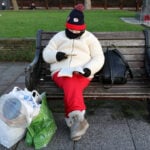 Euro zone households could increase consumption, ECB chief economist says
Euro zone households could increase consumption, ECB chief economist says
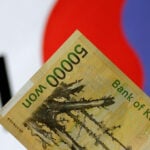 Foreigners sold South Korean equities last month by most since early 2020
Foreigners sold South Korean equities last month by most since early 2020
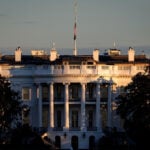 Trump and Biden national and homeland security staff will meet Wednesday for threat exercises
Trump and Biden national and homeland security staff will meet Wednesday for threat exercises
 As fires ravage Los Angeles, Tiger Woods isn't sure what will happen with Riviera tournament
As fires ravage Los Angeles, Tiger Woods isn't sure what will happen with Riviera tournament
 Antetokounmpo gets 50th career triple-double as Bucks win 130-115 to end Kings' 7-game win streak
Antetokounmpo gets 50th career triple-double as Bucks win 130-115 to end Kings' 7-game win streak
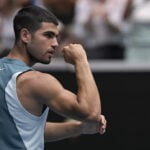 No 97 Laura Siegemund upsets Olympic champion Zheng Qinwen at the Australian Open
No 97 Laura Siegemund upsets Olympic champion Zheng Qinwen at the Australian Open
